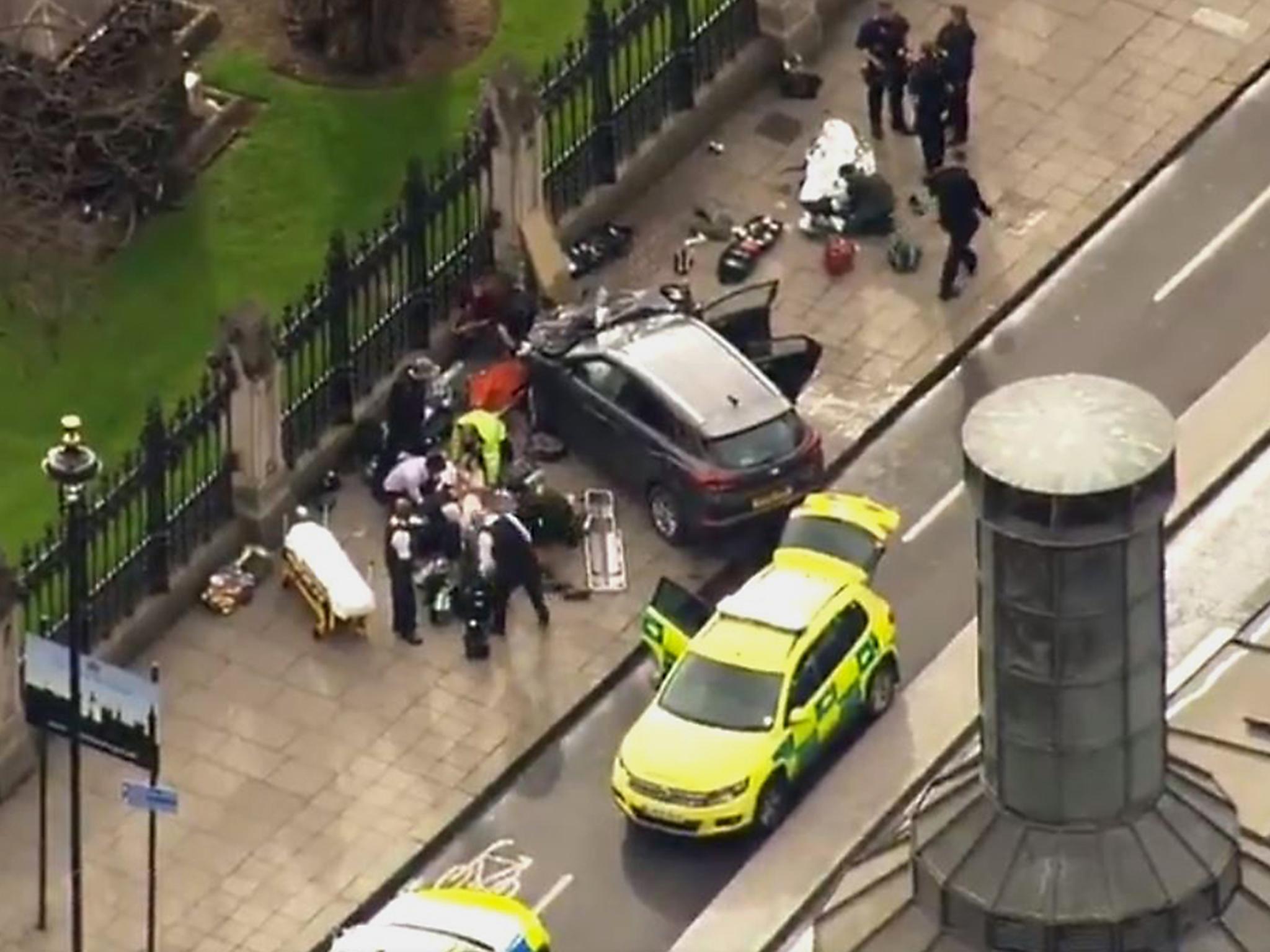A terror attack in London was inevitable, but something made it different from Nice and Berlin
The current threat level in the UK is classified as 'severe', meaning an attack is highly likely


The current threat level in the UK is classified as “severe”, meaning that an attack is highly likely, and it has been long expected that London would be revisited by terrorism.
One recurring theme of concern was of a “Mumbai-style” attack, with teams of gunmen with explosives carrying out multiple raids and seeking to take hostages, a scenario replicated in the Paris atrocity of 2015.
What took place today was more like the recent massacres in Nice and Berlin, with a vehicle being used as a weapon with lethal effect. Unlike in those two cities, however, the terrorist here was armed with a knife and not a gun.
Under the circumstances, the measures to protect the Houses of Parliament itself worked – but at a cost. The car being used for the attack, a dark-coloured hatchback, crashed into railings outside, but in any event, the entrance is blocked by metal barricades which would have prevented entry.
The attacker was shot dead after getting into the grounds, but not before he had managed to stab a police officer to death.
The attacker claimed two more lives and injured 20 others, some of them seriously, when he drove on to the pavement on Westminster Bridge on the way to the Parliament building. But that, unfortunately, could have happened in any public road near or far from Parliament.
There are other possible scenarios. The car could have been packed with explosives or the attacker could have been carrying a gun.
That would have, almost certainly, led to an even greater number of casualties. There are contingency procedures in place for that, including flying in a SAS team to deal with an ongoing situation. But the only way to prevent that would be to bar vehicles from the vicinity of Parliament.
Even that would not necessarily guarantee total safety, as the IRA’s mortar launch at Downing Street in 1991 showed.
It was inevitable that an act of terrorism would take place sooner or later. In the aftermath there will be debate about additional security measures and whether that infringes on civic society.
Less than half an hour after the carnage a member of the public, stopped at a police cordon, demanded to know “Why not? It’s a free country”. The response was, “Not at the moment it’s not”.
Join our commenting forum
Join thought-provoking conversations, follow other Independent readers and see their replies
Comments